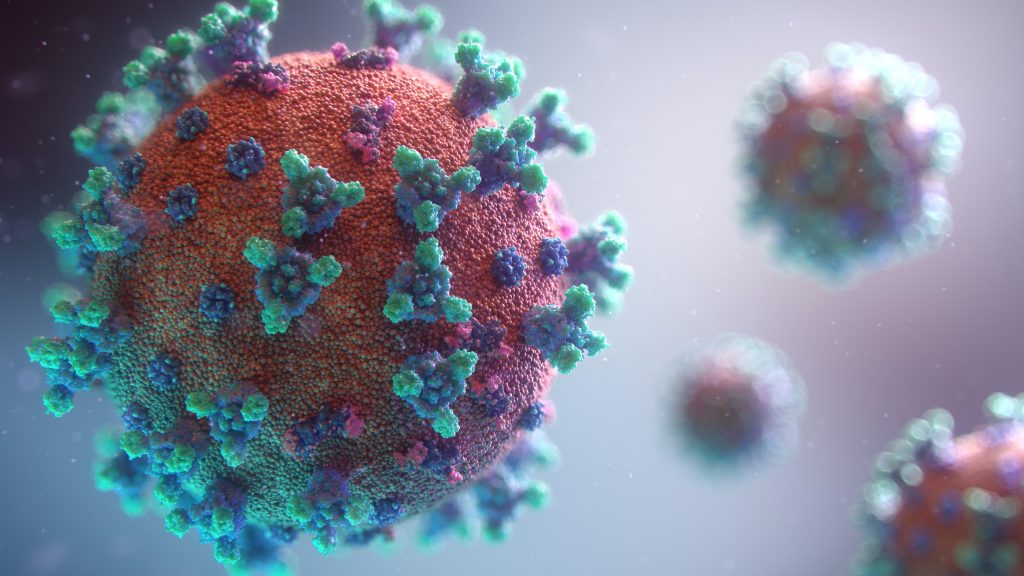Artificial intelligence and a new test method: Two DNRF heads of centers’ individual corona research available on Videnskab.dk
Since the COVID-19 pandemic broke out earlier this year, two heads of centers from the DNRF —Professor Jørgen Kjems from CellPat at Aarhus University, and Professor Jens Lundgren from Persimune at Rigshospitalet — have been occupied with their corona research. On Videnskab.dk you can read about Kjems’ research on a new test method or Lundgren’s weekly updates on the situation with the virus and the corona research being done at the Rigshospitalet that stems from the Center of Excellence Persimune.

Since the COVID-19 pandemic broke out earlier this year, two heads of centers from the DNRF — Professor Jørgen Kjems from CellPat at Aarhus University, and Professor Jens Lundgren from Persimune at the Rigshospitalet — have been occupied with their corona research. On Videnskab.dk the two professors talk about their corona research. Professor Jørgen Kjems received funding from both the Carlsberg Foundation and the Independent Research Fund Denmark to carry out a research project on the corona virus. In an article on Videnskab.dk, Professor Kjems explains the research project and the effort to develop a new test method for COVID-19 infection. In the series “The Corona Week That Went By” (Corona-ugen, der gik) Professor Lundgren, every week, updates the corona situation both in Denmark and abroad, including research methods on the virus developed at Persimune.
Jørgen Kjems receives funding for the development of a new COVID-19 test method
Professor and head of center Jørgen Kjems from the DNRF Center for Cellular Signal Patterns (CellPat) at Aarhus University is overseeing a research project ‘Prediction of COVID-19 Infection and Clinical Severity from Blood-based Biomarker Fingerprints’ that recently received funding from the Carlsberg Foundation and the Independent Research Fund Denmark. The research project aims to develop a new and more secure test method that can both identify COVID-19 infection at an early stage and, at the same time, predict the patient’s course of the disease.
“We know that the body responds to an infection within a few hours by making some changes to the blood composition that makes it ready to fight the virus. But we don’t yet know what the special signature for COVID-19 is. We will find that out,” said Professor Kjems.
The research project will take place in collaboration with Professor Peter Heegaard from the Technical University of Denmark and Professor Peter Garred from the Rigshospitalet. The three researchers will make comparative examinations of human blood and pig blood during different stages of COVID-19 infection.
“We know that some people get seriously ill from the infection, while others get almost no symptoms. We analyze human blood from both categories, to see what different patterns emerge. We hope that, based on the blood composition, we will be able to tell if they can expect a serious course of the disease,” said Kjems. He added:
“Then the hospital system can better estimate how much they need to get ready for. The health care system will thus also have the opportunity to treat patients that are at high risk of hospitalization much earlier, and thus hopefully avoid serious damage to the lungs and other organs.”
Read more about the research project led by Jørgen Kjems on Videnskab.dk (in Danish) here
Jens Lundgren on COVID-19 in Forskerzonen
Every week, professor and head of center at the Center of Excellence Persimune, Jens Lundgren, writes a post in a series in The Researcher Zone (Forskerzonen) called “The Corona Week That Went By.” Here, Professor Lundgren offers updates on the pandemic from both national and international perspectives. In one of the latest posts, Professor Lundgren comments on how artificial intelligence can be a helpful tool in the fight against COVID-19.
However, to use artificial intelligence, Professor Lundgren argues that better access to data about COVID-19 is required. He stresses that, with better access, one would be able to identify patients who are most sick, make individual risk evaluations, and monitor the spread of infection.
“It is extremely important to utilize the existing science capacity to understand numbers and decision-making bases so that we avoid confusion and mistrust – both among citizens and among healthcare professionals,” Professor Lundgren wrote in a post on Videnskab.dk.
Persimune already has an idea of how artificial intelligence can be used in the fight against COVID-19 in the form of the CATCH tool. CATCH, which stands for “Corona Application Tool for Collaborating Hospitals,” is a digital tool developed based on research at Persimune. CATCH is built in three steps, namely CATCH 1, 2, and 3, with each step reflecting the three main functions of the tool, namely, being able to detect, treat, and monitor patients who are either suspected of having or are hospitalized with COVID-19.
“CATCH 1, 2, and 3 are based on our experience from the DNRF-supported center Persimune under CHIP, which, since 2011 has developed and operated clinical applications for monitoring and treating selected viral infections,” said Professor Lundgren.
“The rapid development of CATCH has been possible because the application is based on methods for data exchange and data processing that have already been thoroughly tested and implemented,” said Lundgren. He added:
“The potential for scaling CATCH is great – if we can access the necessary data sources.”
